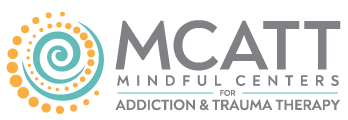Sex Addiction Therapist Forest Grove, OR
Sexual addiction is a complex and multi-faceted issue that can be caused by a variety of factors. Some potential reasons for addiction to sex may include:
Psychological factors: Sexual addiction can be a way of coping with underlying psychological issues such as anxiety, depression, trauma, or low self-esteem.
Neurological factors: Some research has suggested that individuals with sex addiction may have abnormal brain chemistry, which can lead to compulsive sexual behavior.
Environmental factors: Exposure to sexually explicit content, cultural or social norms that promote sexual promiscuity or sexualization, or a lack of healthy sexual education or relationships can contribute to addiction to sex.
Hormonal factors: Research suggests that some individuals may have higher levels of certain hormones, such as testosterone, which can increase sex drive and make it more difficult to control sexual behavior.
It’s important to note that addiction to sex is a complex issue, and there may be a combination of factors that contribute to it. Treatment typically involves a multi-disciplinary approach, including therapy, support groups, and possibly medication. If you or someone you know is struggling with sexual addiction, it’s important to seek professional help from a qualified healthcare provider.
How do I get rid of my addiction to sex?
Overcoming an addiction to sex can be a challenging process, but it’s important to know that it’s possible to regain control over your sexual behavior with the right support and treatment. Here are some steps you can take to help you get rid of your addiction to sex:
Seek professional help: Consider seeking the help of a therapist who specializes in sexual addiction. They can work with you to identify the underlying issues that may be contributing to your addiction and develop a personalized treatment plan to address those issues.
Join a support group: Support groups such as Sex Addicts Anonymous (SAA) can provide a safe and supportive environment to share your experiences, learn from others, and get the support you need to overcome your addiction.
Practice self-care: Engage in activities that promote a healthy lifestyle such as regular exercise, healthy eating, and adequate sleep. Avoid substances such as drugs and alcohol that can impair your judgment and lead to impulsive sexual behavior.
Set boundaries: Set clear boundaries for yourself around sexual behavior, and avoid situations that could trigger a relapse. This may mean avoiding certain places or people that you associate with your addiction, and finding healthy ways to cope with triggers.
Consider medication: In some cases, medication may be recommended to help manage the symptoms of sexual addiction, such as depression or anxiety.
Remember that recovery from sexual addiction is a process, and it may take time and effort to achieve. With the right support, however, it is possible to regain control over your sexual behavior and lead a healthy and fulfilling life.
Book A FREE 20-Minute Consultation
Reach out for help today and one of our therapists will return to you.
Our company provides telehealth services using the Zoom platform. Please call 562.356.8686 or if you would like to be contacted via form please fill out below.
Treating sexual addiction
One-on-one therapy with a mental health professional.
Cognitive Behavioral Therapy (CBT)
Eye movement desensitization and reprocessing (EMDR)
Psychodynamic therapy.
Group therapy.
Support groups.
Inpatient treatment.
Couples counseling or marriage counseling.
Is sex addiction a behavioral disorder?
Yes, sex addiction is generally considered a behavioral disorder. It is sometimes referred to as hypersexual disorder or compulsive sexual behavior disorder. Sex addiction is characterized by a persistent and escalating pattern of sexual behavior that individuals have difficulty controlling, despite the negative consequences it may have on their lives.
Like other behavioral disorders, sex addiction can impact an individual’s relationships, work or school performance, and overall quality of life. It can also lead to a variety of physical and mental health problems, including sexually transmitted infections, depression, anxiety, and low self-esteem.
It’s important to note that while sex addiction is classified as a behavioral disorder, it is still a controversial and debated topic in the mental health field. Some experts believe that it may be more accurate to view sex addiction as a symptom of underlying psychological issues or trauma, rather than a separate disorder. Ultimately, a qualified healthcare provider can help assess your individual situation and determine the most appropriate diagnosis and treatment plan.

You Are Not Broken
With more than 20 years of experience, our caring staff members are specifically trained in the treatment of sexual addiction and are dedicated to our clients’ successful recovery. Our goal is for you to reclaim your life through healthy habits and positive behaviors. To schedule your initial consultation with Mindful Centers, call one of our outpatient centers in Los Angeles, Long Beach, or Newport Beach at (562)356-9835. We will tailor a customized treatment program to meet your needs with flexible scheduling and the benefit of more than 20 years of experience in sexual addiction recovery.
Sex Addiction, Porn Addiction, Coaching and Couple’s Therapy Thru Telehealth Services
Thru Telehealth — sometimes called telemedicine — lets us consult for you without an in-person office visit. Telehealth is done primarily online with internet access on your computer, tablet, or smartphone. Fill out the consult form and receive 20 minutes free consultation.

